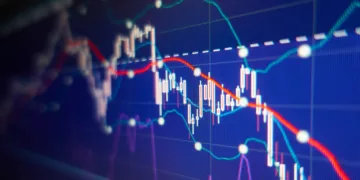The Nigerian Association for Energy Economics (NAEE) has called for localised solutions as Nigeria navigates its energy reforms against rising global geopolitical tensions.
Speaking at the 18th NAEE/International Association for Energy Economics (IAEE) Annual International Conference, experts emphasised the need to tailor energy policies to Nigeria’s unique realities while safeguarding vulnerable populations during the ongoing reforms.
Former NAEE president Prof. Adeola Adenikinju, while commending President Bola Tinubu’s macroeconomic policies as robust and forward-looking, however stressed that the reforms must include protection for Nigeria’s vulnerable groups, cautioning that markets alone cannot ensure their welfare.
Delivering a keynote address at the conference, Dr Adenikinju further highlighted the necessity of investing in infrastructure and expanding access to affordable electricity, particularly through solar energy and greater availability of Liquefied Petroleum Gas (LPG).
He said, “The government is doing well regarding macroeconomic policies and stability. However, in this kind of reform, you must also find a way to identify the vulnerable groups and see how you can protect them. The market will not do that for you.”
In his recommendation, Adenikinju underscored the need to strengthen Nigeria’s infrastructural base and called on the government to ensure that all Nigerians have access to affordable electricity through the deployment of solar energy.
Besides, he called for removing barriers to domestic gas access to enhance the distribution and use of Liquefied Petroleum Gas (LPG). He stressed that while the current reforms are necessary, their impact on the weak must be considered.
Also, the secretary general of the African Petroleum Producers Association (APPO), Dr Farouk Ibrahim, stressed that fossil fuels will remain vital for Africa despite global energy transition pressures.
He warned against uncritical adoption of global energy dogmas, noting Nigeria’s current energy insecurity and limited mastery of existing power technologies.
Ibrahim argued for a balanced approach that reflects Africa’s economic and technological realities.
He maintained that hydrocarbons could not be easily phased out and that the promise of renewable energy remains far from realisation within the projected timeline, given the several challenges to its adoption.
According to him, while energy transition remains a critical conversation globally, Africa’s unique realities require a balanced approach that does not undermine the role of fossil fuels in the continent’s development.
Themed: “Emerging Geopolitics of the Energy Landscape – Navigating Global Shifts and Their Impacts on Developing Economies,” the event brought together policymakers, academics, and industry leaders to discuss sustainable strategies for energy development amid shifting global dynamics.
Ibrahim added, “As leaders in Africa’s energy industry, I hope this significant admission by the IEA encourages us to be more critical in accepting dogmas presented as scientific facts. If Africa fails to produce the components it needs, whether in renewable or conventional energy, it will remain independent.
“My first point, therefore, is this: whatever the direction of the global energy transition, we must understand its economic implications for Nigeria. The term ‘transition’ implies moving from one system to another. But before we can move, we must first master what we currently have.
“Right now, we are energy insecure. Our power systems remain fragile, and our mastery of even the existing technologies—alternating and direct current systems—is still limited.”
Representing IAEE president Edmar Fagundes, Prof. Omowumi Iledare reiterated the importance of evidence-based dialogue and called for an energy future for Africa that prioritises affordable access, industrial competitiveness, and intergenerational equity rather than mimicking European models.
The chief executive of the Nigerian Midstream and Downstream Petroleum Regulatory Authority (NMDPRA), Farouk Ahmed, highlighted how the ongoing conflicts in Eastern Europe and instability in the Middle East deepen global energy volatility. He explained that for Nigeria, these geopolitical shifts present both challenges—such as market instability and investment constraints—and opportunities to leverage its natural gas resources, human capital, and strategic position to foster sustainable growth. Ahmed urged that Nigeria’s energy transition must be rooted in realism, resilience, and responsibility, adapting global frameworks to local circumstances.
“For developing economies like Nigeria, these global shifts bring both challenges and opportunities. On one hand, we face exposure to market volatility, constrained access to investment capital, and pressures from the global transition agenda.
“On the other hand, we are presented with a unique opportunity to redefine our energy pathways — to leverage our natural gas, our human capital, and our strategic geography to create sustainable growth and inclusive development.
“Nigeria’s energy transition journey must therefore be anchored on realism, resilience, and responsibility. We cannot simply import global models; we must adapt them to our local realities,” Ahmed, who was represented by Zainab Gobir, the NMDPRA’s Executive Director of Economic Regulation, said.
The conference, themed “Emerging Geopolitics of the Energy Landscape – Navigating Global Shifts and Their Impacts on Developing Economies,” gathered policymakers, industry leaders, and academics to chart sustainable energy strategies geared toward Nigeria’s development amid complex global changes.





